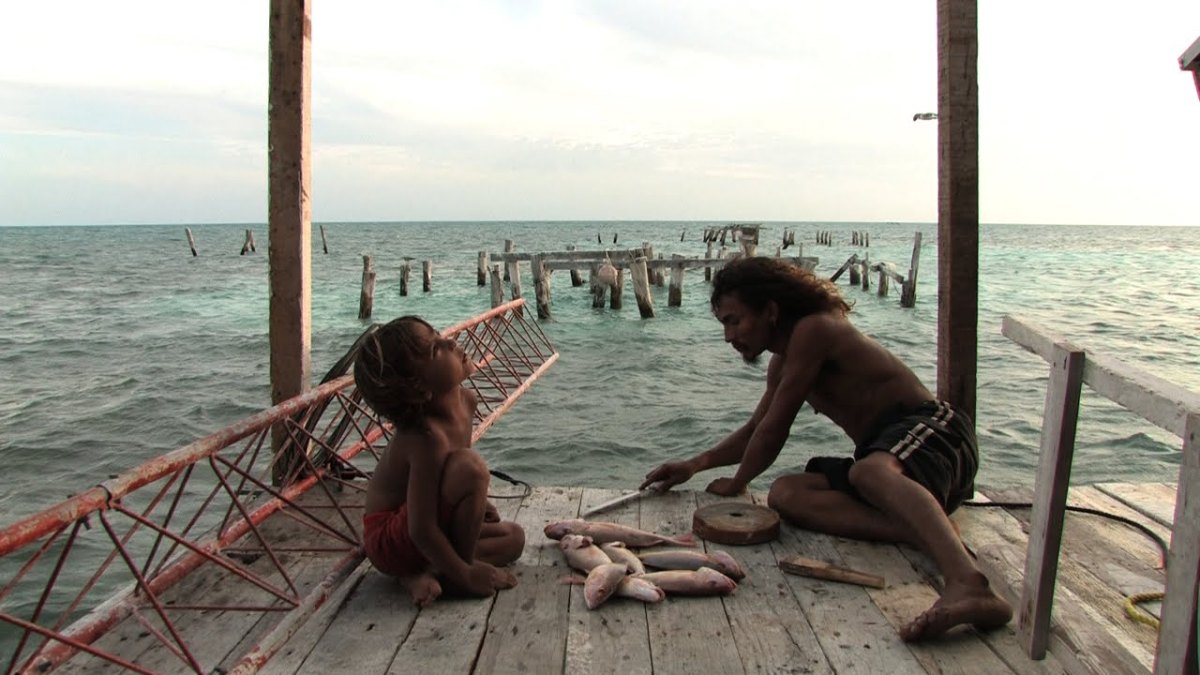Written & Directed by Pedro Gonzalez-Rubio
I don’t know how to classify this film. It comes off as a documentary. It looks like one and feels like one. Yet, the end credits say there is a cast. There are some shots that had to have been pre-arranged unless they had about three or four cameras and invisible cameramen. So perhaps it is both. It is a true tale that is aided by some filmmaking tricks. I am still convinced that what I saw was real. That the relationship between a little boy, his father, and his grandfather was unscripted and raw.
The story is that of little Natan, who is the son of a mother who lives in Rome and the son of a father who lives in the reefs of Mexico with his grandfather. Natan has been back and forth and it appears to be a rough life for the kid. His down trodden look in the beginning of the film tells the whole tale. So the parents have decided his father will take him for a while one last time, then he will live with his mother in Rome permanently. So we are whisked away to beautiful Mexico and the fishing village and lifestyle of Jorge and Nestor. They fish a little, talk a little and sleep a little. It appears to be a laid back lifestyle that includes diving to fish for both money and food. They live in a shack on stilts out in the shallow of the ocean. They sleep in hammocks hanging from the ceiling. They have just a short time left with little Natan.
This film is ultra simple. There is little dialogue and simply depicts the goings on between a son and his father. Some will find the proceedings dull and boring but I was captivated by the relationship between the father, Jorge, and his son Natan. The film is short and so is the time Jorge has left with his son before he goes back to Rome. He doesn’t force his way with the kid, he encourages him and allows his imagination and curiosity to blossom. It is a beautiful thing. The film is full of little things that just made me smile, made me happy.
The film was beautiful both in the emotion and story it captured as well as the way it captured it. It was shot on handheld digital cameras start to finish and featured no CGI or flashy camera tricks, yet it captured the beauty of the ocean and of humanity. It was the simplest shots that created the most unique and fantastic perspective on the world. It is films like this that can reveal to the viewer something different, something they have never seen before. With this type of storytelling and this type of cinematography I can see the simplicity of the beauty of the world. The best films do this. Alamar may be a foreign film. It may be obscure, but it is the type of film that makes me love cinema.

